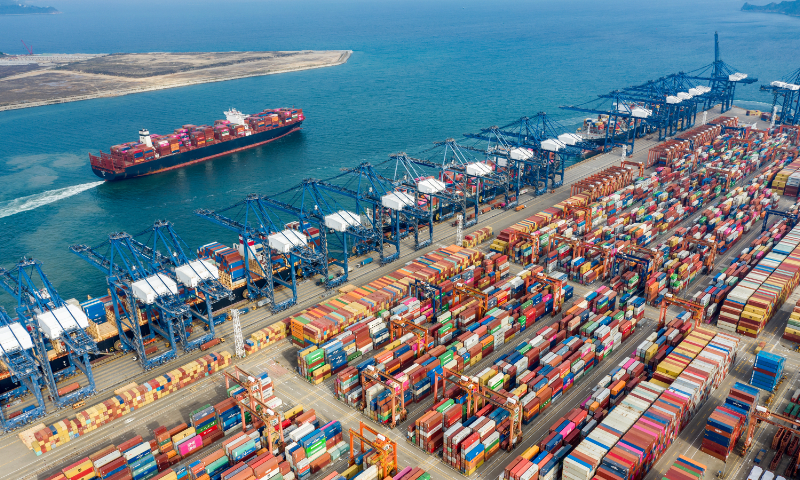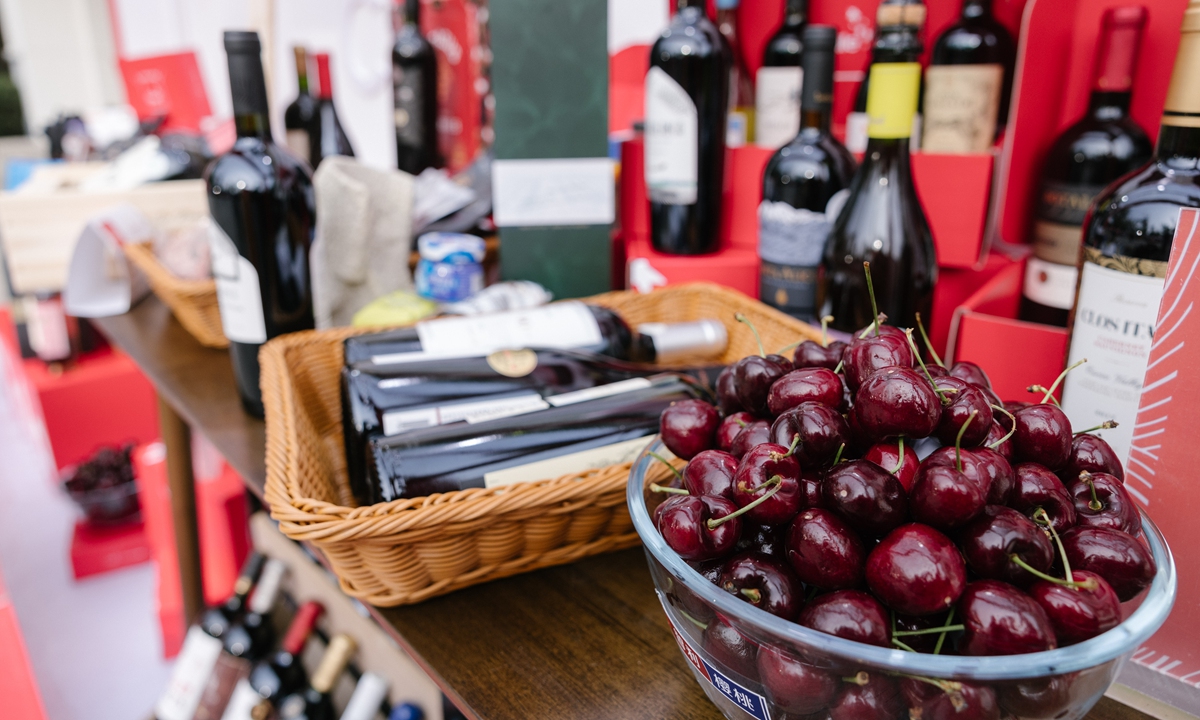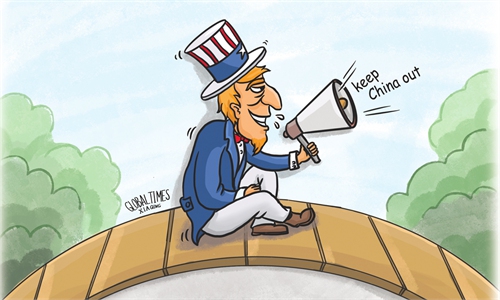Xi urges Chinese, LAC businesses to seek shared devt, as major summit eyes closer cooperation
Firms eye more opportunities in China's market

Containers pile up at the busy Yantian Port in Shenzhen, South China's Guangdong Province. Photo: VCG
Addressing the 15th China-Latin America Entrepreneurs Summit on Wednesday, President Xi Jinping called on business communities of China and Latin America and the Caribbean (LAC) to seek shared development in a bid to make new and greater contributions to promoting the building of the China-LAC community with a shared future, Xinhua reported on Thursday.
The summit took place in Ecuador's major city Guayaquil on Wednesday and Thursday, where businesses from both sides eye opportunities for closer cooperation and an open world economy amid a global downturn and rising protectionism.
In written remarks to the opening ceremony, Xi also said that China-Latin America relations have entered a new era of equality, mutual benefit, innovation, openness, and shared benefits, stressing that the business community is a new force for China-Latin America practical cooperation, according to Xinhua.
The summit, themed "Seizing the Post-epidemic Recovery Opportunity and Building an Interconnected World," came as the world is facing lingering challenges of the pandemic, inflation and unilateralism. The summit sends an important message for stronger cooperation between China and the LAC, experts said.
Some important topics such as the digital economy, energy transformation, food security, and climate change drew widespread attention at the summit.
More than 600 representatives from Chinese and LAC government departments, business circles, trade promotion agencies and think tanks participated in the meeting online and on-site, according to media reports. Many LAC firms are eyeing more opportunities in the Chinese market amid closer ties.
"We see that our bananas, due to their quality and durability, have a lot of potential in Asia. This is why our focus has been to see China as a market to be [explored] by increasing exports. It has a population that demands and consumes high-quality fruit," José Antonio Hidalgo, executive director of the Association of Banana Exporters of Ecuador (AEBE) said at the summit, according to AEBE's official Twitter account on Thursday.
Countries like Chile have gained a lot of market share in China, while Ecuador has only 1 percent in terms of fruit market share, Hidalgo said, indicating the great potential that Ecuadorian fruit exporters can look into in China.

Chilean food is displayed during the Chile Week held in Beijing on Tuesday. Photo: Li Hao/GT
Victor Cadena, executive vice president of the Mexican Chamber of Commerce in China (MexCham), told the Global Times on Thursday that the organization has a business delegation in Ecuador attending this year's summit.
"We have attended the event for 15 years, and have paid a lot of attention because this is one of the most important events from the business perspective between China and Latin America," Cadena said.
Cadena said that for the Mexican business association, the event is very relevant, because of the significance of bilateral trade relations.
China is Mexico's second-largest trading partner globally after the US, and Mexico is the second-largest trading partner to China in Latin America after Brazil.
"Next year, the 16th term of the summit is expected to be held in Beijing and we look forward to participating with a large delegation," Cadena said. The organization often sends at least 50 businesspeople to the summit, and probably even more next year, he said.
In recent years, China-LAC economic and trade cooperation has overcome the adverse impact of the COVID-19 pandemic, showing strong resilience and growth momentum.
In the first 10 months of this year, bilateral trade reached nearly 2.7 trillion yuan ($387.5 billion), a year-on-year increase of 13.1 percent, higher than the overall growth of China's foreign trade during the period, according to China's Ministry of Commerce (MOFCOM). Both imports and exports have increased significantly.
Bilateral trade has now fully recovered and exceeded the pre-epidemic level, the MOFCOM said.
China has signed free trade agreements (FTAs) with Chile, Peru and Costa Rica, and products of these countries, ranging from cherries to avocados, have become popular items in the Chinese market.
Other regional countries that are currently in FTA talks with China include Ecuador, Uruguay and El Salvador, Xu Shicheng, a research fellow at the Institute of Latin American Studies at the Chinese Academy of Social Sciences, told the Global Times on Thursday.
China-LAC countries are strongly complementary in trade, with strong potential to be tapped, especially in agriculture and fruit.
It is estimated that this year, bilateral trade has risen at least 10 percent, Xu said.
China-Latin America ties have also been reflected in their strong infrastructure cooperation, with Chinese investment and technology continuing to promote the improvement of local infrastructure.
As of 2021, China had implemented 192 infrastructure projects in the LAC region, with a total investment of $98.4 billion, providing more than 673,000 local jobs, according to a report released by Red ALC-China in September.
As China is optimizing its epidemic control measures, China will be further opening up and making it easier for international travelers, which will also boost China's trade and investment activities in the Latin American region, experts said.
"We believe that this optimized policy will not only smooth travel and reduce flight costs, but also facilitate investment and trade between China and the Latin American region and beyond," Cadena said.



